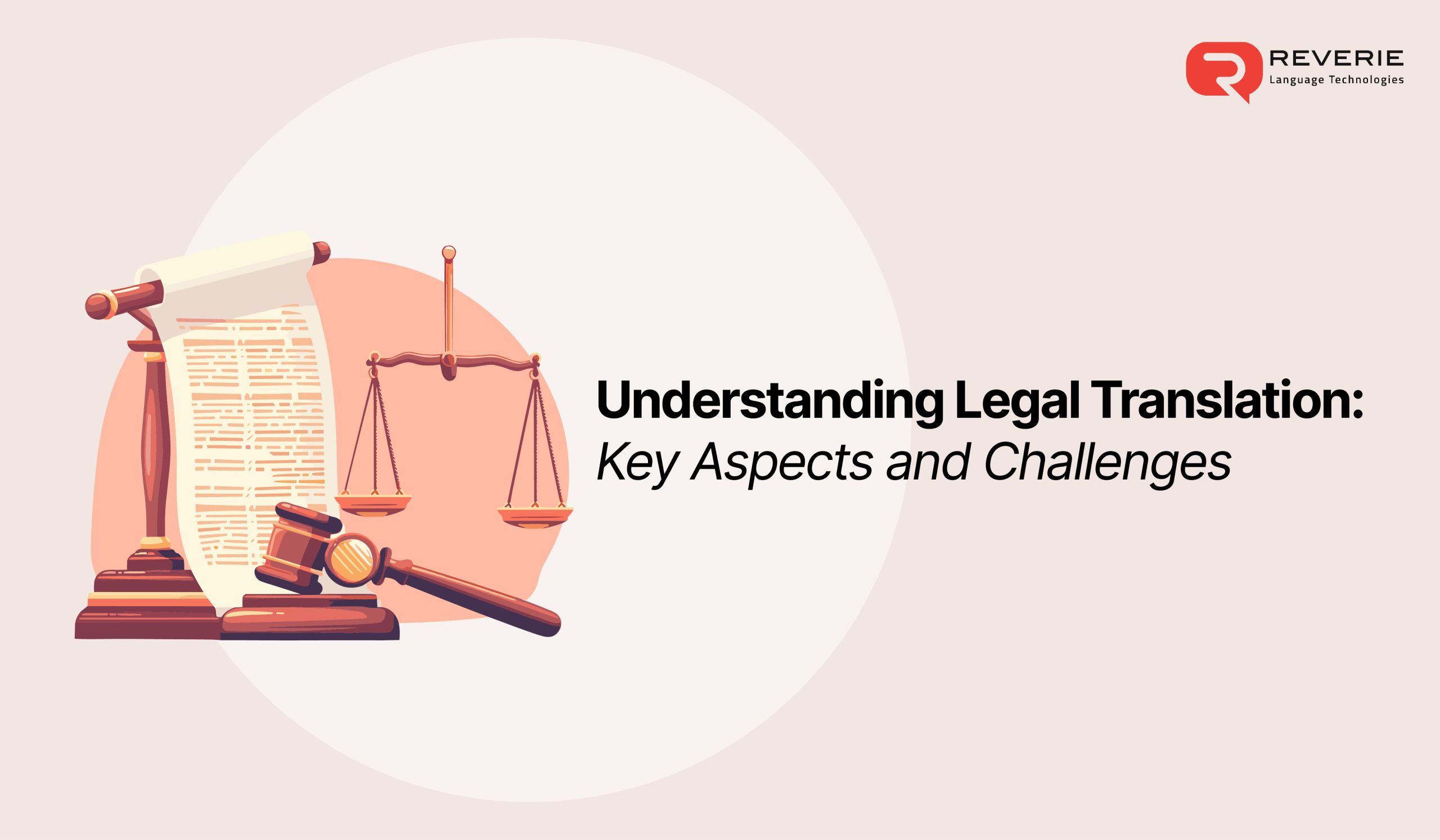Imagine a scenario where a multinational corporation finalises a significant deal in India, only to find out later that a minor mistranslation in the contract led to the invalidation of the agreement.
The harsh reality is that this isn’t a hypothetical scenario. There have been instances worldwide where businesses had to face legal and financial repercussions because of translation errors. One prime example of this would be the South Korea-EU Free Trade Agreement (FTA) deal from 2011. More than 200 translation mistakes in the legal documents led to South Korea’s failure to secure the FTA deal. This highlights the importance of accurate legal translation.
The multilingual landscape of India adds one more layer of complexity, presenting a unique challenge for businesses. Legal translation is critical for businesses but is often overlooked. It involves accurate and precise translation of legal documents, including contracts, regulatory filings, and more. Inaccuracy in the translation of legal documents can lead to contract disputes and even costly litigation. That’s why professional legal translation services have become essential for businesses.
In this blog post, we’ll explore the fundamentals of translation of legal documents, why is legal translation important, and how you can navigate the challenges it presents.
The Fundamentals of Legal Translation
Legal translation is the process of translating legal documents from one language to another.
It involves preserving the original meaning and legal efficacy of the documents across languages. Unlike general translations, legal translations require an understanding of the terminology, structure, and unique intent of each legal document. There are various types of legal documents that commonly require translation. These documents include:
- Contacts and Agreements: Business contracts, employment agreements, sales agreements, and vendor contracts.
- Corporate Documents: Articles of incorporation, meeting minutes, bylaws, shareholder agreements, and other governance documents necessary for regulatory compliance.
- Intellectual Property Documents: These primarily include patents, copyright registrations, and trademarks.
- Regulatory Compliance Documents: Trade licences, documents for tax filings, permits, compliance reports, and certifications.
Businesses have to ensure that these documents are translated into different languages with high precision, making legal translations essential. This level of precision helps you prevent disputes while ensuring compliance and maintaining legal integrity. Let’s understand why legal document translation is important to businesses in India.
Why Legal Translation Matters for Your Business?
India has one of the fastest-growing economies in the world. In fact, India’s economy grew at a rapid rate of 8.2 percent in FY23/24. This has helped India solidify its position in global business. As more businesses aim to establish or expand, they are likely to cross linguistic cultural boundaries within the country, making legal translation critical. Here’s why it matters to your business:
- Risk Mitigation and Compliance: Even minor errors in legal documents can lead to severe consequences such as legal disputes and penalties. With accurate translation, you can avoid them and ensure compliance with local laws and regulations, reducing the risk of legal disputes.
- Market Expansion Opportunities: With precise legal translations, your business can operate seamlessly in different regions and tap into new markets by complying with regional legal requirements.
- Protection of Intellectual Property Rights: Accurate translation of patents, trademarks, and copyrights ensures that your intellectual property is protected from infringement.
- Building Trust with International Partners: Clear, accurate translated agreements build credibility and trust among partners and clients, which is essential for forming partnerships and getting investors.
- Legal Validity and Enforcement of Documents:Documents that are well-translated retain their legal enforceability in courts, ensuring your each document is held up legally.
- Impact on Business Operations Across Indian States: Each state in India has its own legal nuances and requirements, which demand accurate transitions to avoid any kind of operational roadblocks.
Investing in professional legal translation services can help your business avoid pitfalls and ensure smooth operations. But first, it’s important to get familiar with some key aspects of legal translation.
Key Aspects of Legal Translation
There are several critical elements associated with legal document translation that help in maintaining the intended meaning and legal enforceability of documents across languages and cultures. Here are some of the key aspects of high-quality legal translation:
Accuracy and Precision
Accuracy and precision are the two most critical elements of legal translation, as even minor mistakes can lead to legal ramifications. It requires exact wording to ensure that the original intent of the document is preserved. Platforms such as Reverie’s Translation API can aid in achieving consistent and high-quality translations.
Confidentiality and Security
The sensitive nature of legal documents requires confidentiality. This is why professional legal translation services like Reverie provide businesses with secure platforms for managing their translation projects. These tools also offer centralised documentation with encryption and controlled access.
Understanding Legal Terminology and Context
Legal translation differs from generic translation in one more aspect – it requires in-depth knowledge of legal terminology in the source and target language. Professional translators have the understanding of the critical concepts and jargon required to preserve the intended meaning.
By understanding and focusing on these key aspects, you can ensure accurate and effective translations that achieve the intended purpose. However, it also comes with its own set of unique challenges, which businesses must know.
Common Challenges in Legal Translation
While it’s clear that accurate legal translations are crucial, it is a specialised skill that does not come without its challenges. Here are some of the common hurdles businesses face:
- Complexity of Legal Language: Legal texts typically include specialised, nuanced language that can be tricky to translate accurately. This requires a deep understanding of equivalent phrasing and legal concepts to avoid mistakes.
- Consistent Tone and Intent: Legal documents have a formal tone, hence, preserving that authoritative tone and accurate legal intent of the original document is imperative. Any deviation can have a significant impact on the legal validity and enforceability of the translated document.
- Time Constraints and Urgency: Legal matters often come with tight deadlines, and delays in translations can impede legal proceedings or sometimes business transactions.
These challenges put emphasis on finding professional legal translation services and the use of advanced technology solutions, such as those offered by Reverie.
How Reverie’s Language Solutions Can Assist in Legal Translation
The world of legal translation is an intricate one and utilising the right technology can make all the difference. By choosing reliable legal translation services, you can help your business avoid missteps and ensure compliance with laws. Reverie’s AI-backed language platforms can help you navigate the complexities of legal translations with ease. To learn more about how Reverie can help your business, book a free demo today!
Faqs
What is legal translation?
Legal translation is the process of translating texts of legal documents from one language to another while ensuring that the original meaning and legal validity of the documents are preserved.
Why is accurate legal translation important for businesses?
With accurate legal translation, you can ensure compliance with laws and mitigate the risks of disputes. It also helps in maintaining the enforceability of legal documents across different jurisdictions.
What types of documents require legal translation?
Here are the common documents that require legal translation:
- Patents
- Compliance reports
- Bylaws
- Court documents
How can businesses choose the right legal translation service?
Businesses should look for services that have expertise in legal terminology, data security measures, and advanced language technologies. This helps ensure high-quality translations.
How does technology assist in legal translation?
Technology enhances the accuracy and speed of translations. In addition, it also helps maintain consistency in translations.


